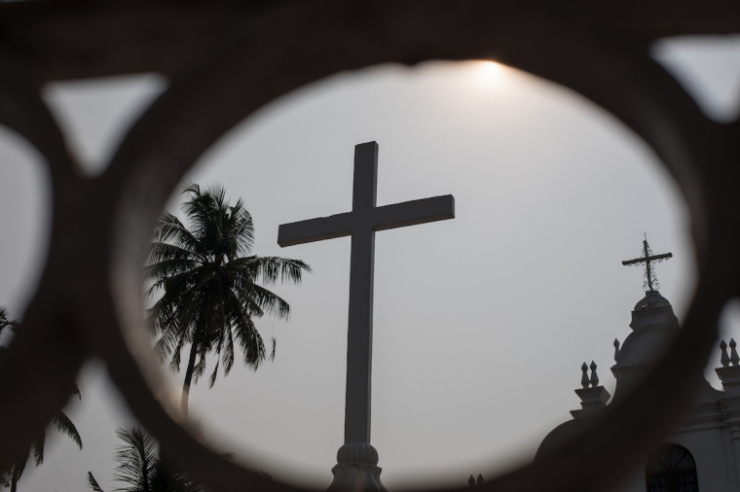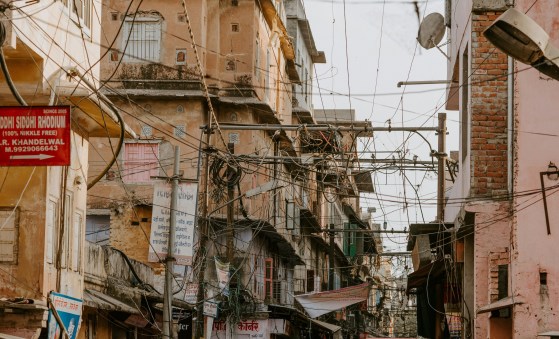
Allies of the Indian government are working to pressure the U.S. Commission on International Religious Freedom to reverse its recommendation that the State Department label India as a “country of particular concern” for religious freedom violations, an activist warns.
John Prabhudoss, the chairman of the Washington, D.C.-based Federation of Indian American Christian Organizations, spoke at a panel event Wednesday to discuss “India’s Designation as CPC” hosted by International Christian Concern.
The panel discussed the state of religious freedom in India and the need for the State Department to designate the world’s second-largest nation as a “country of particular concern” for engaging in or tolerating religious freedom violations.
In recent years, Christians in India have faced escalating persecution that has seemingly coincided with the rise to power of the Hindu nationalist Bharatiya Janata Party. The country is ranked by Open Doors USA as the 10th-worst in the world regarding the severity of Christian persecution.
Countries subject to the State Department’s “CPC” designation face negative consequences, including the possibility of crippling sanctions.
While USCIRF, a congressionally mandated body of independent experts tasked with advising the federal government on religious freedom issues, included India on its list of countries of particular concern in its 2020 annual report, the U.S. State Department never acted on that recommendation.
USCIRF cited the implementation of “national-level policies violating religious freedom across India” as a cause for particular concern. However, the Indian government rejected the report's findings as "biased."
ICC’s Wednesday panel discussion comes as USCIRF’s 2021 annual report is scheduled for release later this month.
“Indian American Christians are deeply concerned about a campaign run by a foreign Hindu nationalist government through its proxies in Washington to reverse the USCIRF recommendation on India,” Prabhudoss said.
He urged the organization to maintain its designation for India and not bow to political pressure.
“The United States Commission on International Religious is mandated by the Congress with a task. The task is to observe, study and simply report to the Congress the following: severe violations of religious freedom in the country, identification of prisoners in the country, action taken by governments to censor religious content, communications or worship activities online, [and] persecution of human rights advocates seeking to defend their rights,” he added.
“Nowhere [does] it asks the commission to consider how the report would make the political leaders of a country feel or react. The mandate of the commission is to study and report based on the facts.”
Prabhudoss warned of the consequences of not taking a tough stance against India now.
He shared the types of arguments heard from the Hindu nationalist government in India: “India is a democracy that holds elections. India is a strategic partner for the U.S. India is needed for our strategic interest in Asia, especially given the China factor. India has ... a superb constitution and internal mechanism to deal with some of these concerns raised by the USCIRF board.”
But, Prabhudoss recalled that Pakistan and China were once seen as strategic allies of the U.S. as well. He said that government officials faced pressure not to do anything to antagonize those governments even though those countries were rife with religious freedom violations and engaged in actions that were hostile to religious freedom and democracy.
“The United States propped up two important allies in Asia and neither has … anything to show for,” the activist said. “The policy wonks were monumentally wrong in both cases.”
Prabhudoss said that it is essential for the U.S. actors to ask: “what kind of India we want to have as an ally 10, 15 years from now?”
“Do we like to have a democratic plural nation that cherishes and … values the … ideals of a democracy like we do and be a trusted, reliable partner or an intolerant state run by religious nationalists to the exclusion of Christians and … other religious minorities of their population?” he asked.
“If we don’t make the right decision now, it will be 10, 15 or 20 years too late to do anything about it.”
He argued that even if Washington doesn’t “care for the 100 million-plus people who follow the Christian faith in India,” they should ask if they “at least care for America’s own national security interest in South Asia.”
“Are we doomed to repeat our mistakes that we have committed in Pakistan and China once again in India and left with no allies that America could depend on 20, 30, 40 years from now?” he asked.
According to Prabhudoss, “the Hindu nationalism has proven to be as dangerous as other forms of religious extremism, attacks on Christian institutions and churches every single day ever since the [BJP] came to power is indeed a troubling development.”
“And no, the government of India does not prosecute, [but] the political party in power does persecute,” he argued.
A report from the legal organization ADF India found that from the time the Hindu nationalist BJP rose to power in 2014 through 2019, more than 1,400 incidents of religious persecutions against Christians took place.
Incidents of religious persecution can include assaults on church pastors or members, damage or desecration of places of worship, disruptions of religious gatherings, accusations of forced or fraudulent conversions, forced conversions to Hinduism and refusal to allow religious minorities to build houses of worship.
The Christian Post reached out to the USCIRF for comment but did not receive a response by press time.
In addition to the persecution of Christians, there are also religious freedom concerns for Muslims in India.
Last year, USCIRF held a hearing as Muslims protested against a proposal for a nationwide National Register of Citizens and the Citizenship Amendment Act. USCIRF commissioners heard testimonies about the fears that the legislation could result in some Muslims in the northern region of Assam losing their citizenship.
Last year, the Indian government denied entry visas to USCIRF representatives who planned to investigate reports of religious persecution following the release of its 2020 annual report.
Courtesy of The Christian Post.




